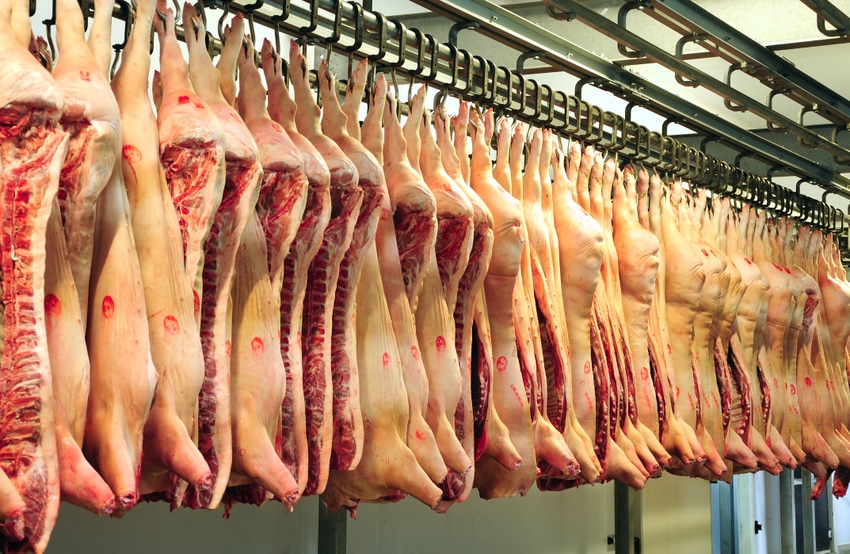Total weight of carcasses reported may include minor nonreportable items attached to carcasses.
November 25, 2019

The USDA Foreign Agricultural Service has published a final rule clarifying the requirements for reporting foreign sales of beef and pork under the Export Sales Reporting Program.
Today's rule clarifies that "muscle cuts" of beef and pork include whole carcasses, whether divided in half or further subdivided into individual primals, sub-primals or fabricated cuts, with or without bone. Carcasses that are broken down, boxed or sold as a complete unit are muscle cuts. Total weight of carcasses reported may include minor nonreportable items (e.g., hooves) attached to carcasses. Meats removed during the conversion of an animal to a carcass (e.g., variety meats such as beef/pork hearts and beef tongues ) are not muscle cuts, nor are items sold as bones practically free of meat (e.g., beef femur bones) or fat practically free of meat (e.g., pork clear plate) removed from a carcass.
Because timely reporting and publishing of agricultural export sales data is key to effectively functioning markets, the Export Sales Reporting Program was established in 1978 to enable USDA to monitor foreign sales of commodities including wheat and wheat products, feed grains, oilseeds and oilseed products, cotton, rice, cattle hides and skins, and beef. In 2013, the program was amended to include weekly reporting requirements for pork.
Exporters are required to report all foreign sales of these commodities to FAS each week and FAS publishes a summary report every Thursday at 8:30 a.m., Eastern time, unless a change is announced.
Source: USDA Foreign Agricultural Service, which is solely responsible for the information provided, and wholly owns the information. Informa Business Media and all its subsidiaries are not responsible for any of the content contained in this information asset.
About the Author(s)
You May Also Like



